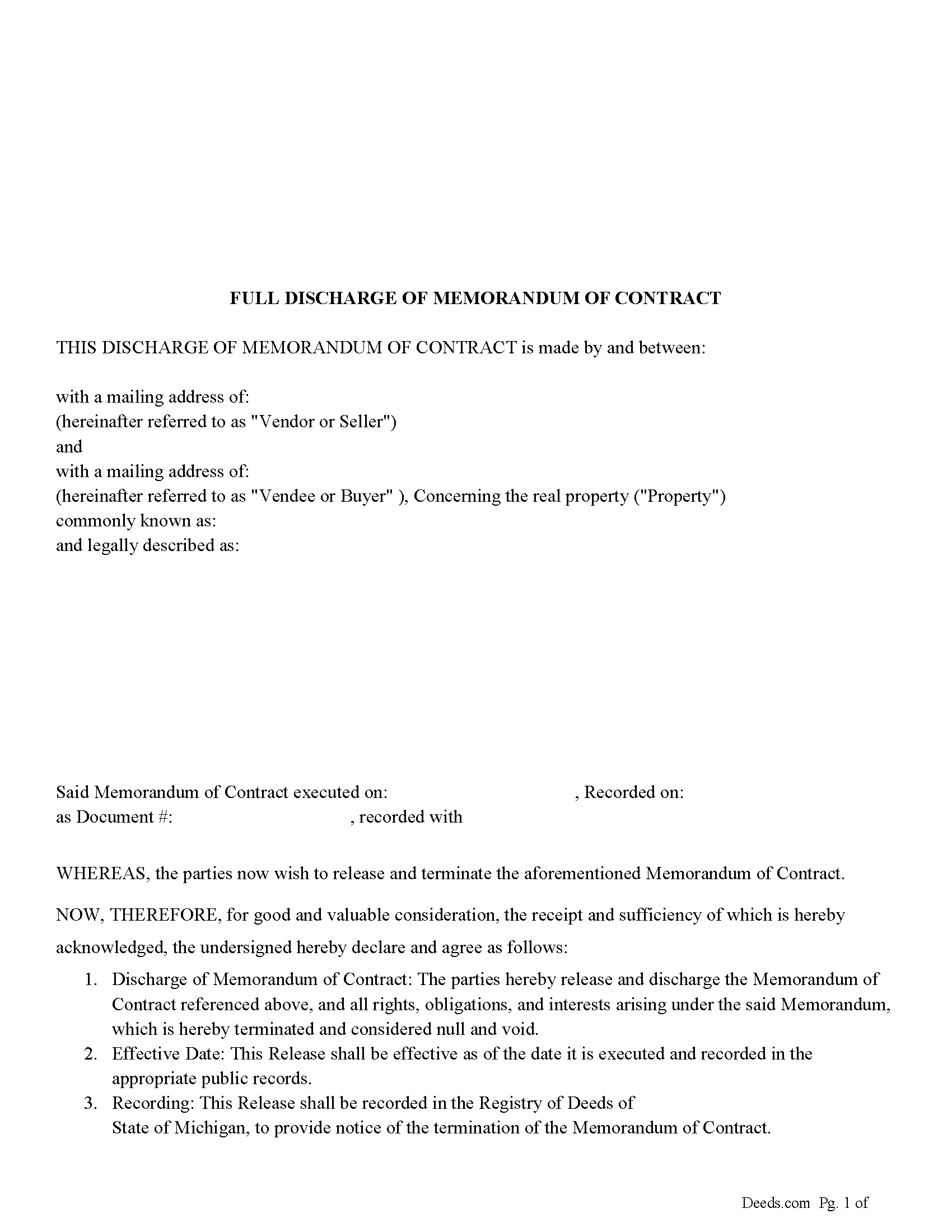Michigan Full Discharge of Memorandum of Contract Forms

Michigan Full Discharge of Memorandum of Contract Overview

How to Use This Form
- Select your county from the list on the left
- Download the county-specific form
- Fill in the required information
- Have the document notarized if required
- Record with your county recorder's office
Michigan statute MCL 565.361 governs the release of a Memorandum of Contract related to land contracts, mortgages, or security assignments.
Here's how it affects the release: If a party has fully fulfilled its obligations under a land contract (e.g., the buyer has paid in full), the seller must execute a conveyance of land or provide a release of security interests.
Requirement to Provide a Release or Discharge: When a land contract mortgage or security assignment is fully satisfied, the party holding the interest (usually the seller or lender) must provide a discharge or release.
Failure or Refusal to Provide a Release: If a party fails or refuses to execute the required release or discharge after full payment, they may be subject to legal penalties and enforcement actions.
Marketability of Title: The statute ensures that once obligations are met and the necessary releases are executed, the property’s title is marketable, meaning it can be freely transferred or sold.
Enforcement & Penalties: If a seller or lender wrongfully withholds a release, the buyer or borrower can seek enforcement through legal action.
Subordination to Other Interests: The statute clarifies that certain real estate interests may take priority over a land contract, affecting the order of enforcement.
Effect on the Release of a Memorandum of Contract: A Memorandum of Contract is often recorded in place of a full land contract to put the public on notice of an agreement. When obligations are fulfilled, this statute requires the release of such a memorandum to clear the title.
Failure to release the memorandum after obligations are satisfied could lead to legal action and possible penalties under this law.
Important: County-Specific Forms
Our full discharge of memorandum of contract forms are specifically formatted for each county in Michigan.
After selecting your county, you'll receive forms that meet all local recording requirements, ensuring your documents will be accepted without delays or rejection fees.
How to Use This Form
- Select your county from the list above
- Download the county-specific form
- Fill in the required information
- Have the document notarized if required
- Record with your county recorder's office
Common Uses for Full Discharge of Memorandum of Contract
- Transfer property between family members
- Add or remove names from property titles
- Transfer property into or out of trusts
- Correct errors in previously recorded deeds
- Gift property to others